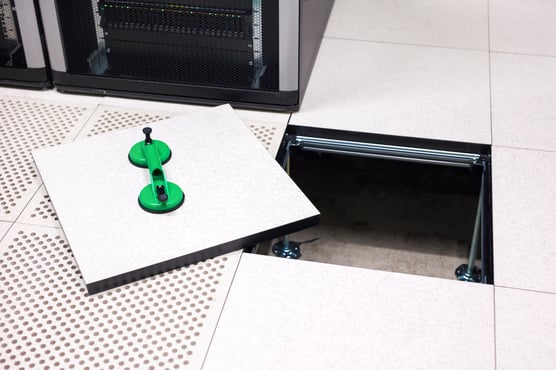
Summer heat can make anybody feel worn out - and electronics are no exception. Because electronics often handle high voltages and high power, the components are usually locked up in control panels. While good for safety, this also means that it can get pretty hot in those control cabinets, especially if they are not properly ventilated or conditioned. These electronics don’t typically warn you when they are getting too hot, they just quit working. Keep that from happening to your facility this summer by learning why these control panels get hot and what you can do about it.
Why Does It Matter?
Does it really matter if electronics in a control panel get too hot? If you want your facility to stay up and running, then yes. Electronics tend to have a lot of power running through them, and because these electronics have some resistance, some of that power is lost as heat. High-efficiency electronics will generate less heat, but some components (like VFDs) can throw off as much as 10% of the power they are managing as heat. The heat from these components starts to heat up the air in the control panels, and if the air gets too hot, the components will no longer be able to operate and will start to shut down or fail.
Sometimes, all it takes to keep a control panel at the right temperature is to add vents at the top and louvers at the bottom. Heat rises, so the hot air will rise and leave out of the top vents while cool air from around the control panel will be drawn in from the bottom. As cooling needs increase, fans can be added so that more air will be drawn through the control cabinet. If this is still not enough cooling, air conditioning can be used to cool down the air enough to keep the electronics performing optimally.
How to Keep Components Cool
As with many pieces of equipment in your facility, keeping parts clean is one of the easiest things you can do to ensure reliability. Dirty filters need to be cleaned or replaced, and any time you see filth or contamination on components (especially heat sinks), clean it off. If the system uses coils or other heat exchangers, make sure that the heat exchanger is clean and free of debris. Clean equipment simply operates better. Adding control cabinet maintenance to your facility’s preventative maintenance schedule is a great way to ensure that maintenance is done year-round.
Related: Clean Air Filters
Control panels typically use circulating fans, cabinet chillers, or both. Depending on the equipment being used, check to see that it is operating properly. If not, replace it now and consider adding some spare parts to your backup inventory. Keeping an extra fan on hand makes a lot of sense if it keeps an entire piece of machinery from going down this summer.
Is Too Much Cooling a Bad Thing?
So if electronic components getting hot is a bad thing, getting them as cool as possible must be the solution, right? The short answer is, it depends. The long answer is that cool temperatures tend to help electronics to perform better, but humidity can quickly destroy those components. Because summer heat can also bring with it high humidity, we have to be careful with how much we cool down control cabinets. Just like an ice-cold drink sitting outside in the summer sun, electronic components can start to sweat if they are cooled down too much and the humidity is too high. Condensation on electronic components can quickly cause a short circuit and fried electronics.
Keeping control cabinets comfortable is key. Typically, a temperature between 80F and 105F will allow your control cabinet to perform optimally. Any higher temperature can risk overheating components, and any lower temperature increases the risk of condensation. If your control panel is designed to allow you to adjust the setpoint, make sure that it is set for a temperature that will be adequate year-round. Adjusting the temperature during the summer months and forgetting to change it back can cause big problems.
Following some of these tips and keeping components clean is the best way for you to keep your electronics operating well this summer. For more help with your facility’s preventative maintenance program, reach out to the pros at Tate to see how they can help.
